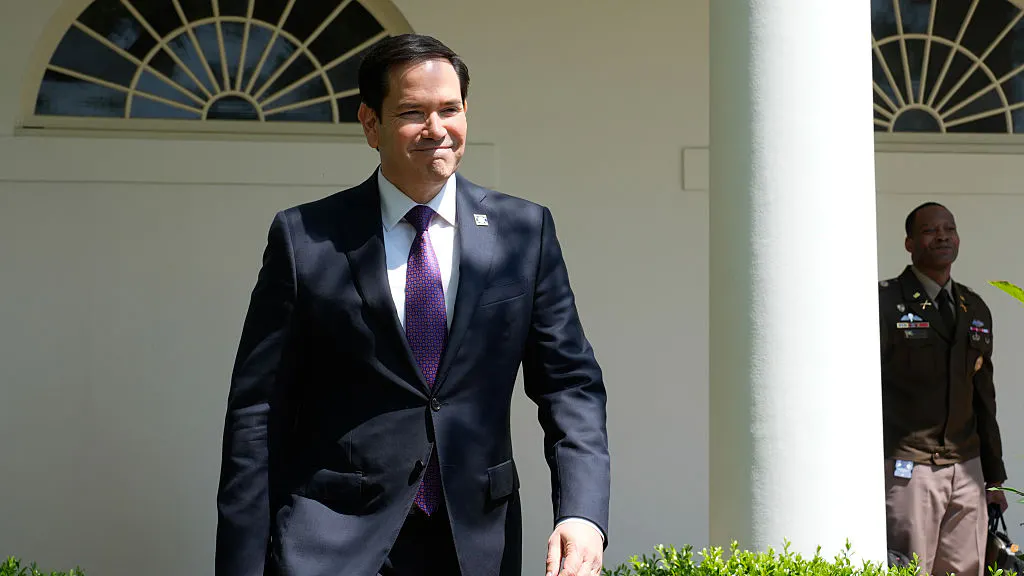Secretary of State Marco Rubio’s call to shut down the Office of Palestinian Affairs (OPA) and consolidate its operations into the U.S. Embassy in Jerusalem is a timely and welcome move that restores clarity and coherence to American diplomacy in the region. The decision not only aligns with U.S. law and longstanding policy, but also reflects a realistic appraisal of the current geopolitical landscape.
The OPA operated as a quasi-independent diplomatic mission to the Palestinian Authority, with its head reporting directly to the State Department rather than to the U.S. Ambassador in Jerusalem. Its presence in the heart of Jerusalem, separate from the embassy, created confusion about America’s stance on the city’s status and appeared to circumvent both Israeli sovereignty and the Jerusalem Embassy Act of 1995, which recognizes Jerusalem as Israel’s capital and directs that the U.S. embassy be located there.
This arrangement wasn’t new. The Trump administration closed the OPA in 2019 for precisely these reasons, merging its responsibilities into the newly established U.S. Embassy in Jerusalem. That decision was consistent with President Trump’s broader effort to reshape American policy in the Middle East by acknowledging geopolitical realities rather than clinging to outdated diplomatic frameworks.
When the Biden administration reopened the OPA in 2022, it reignited controversy. The move was met with strong opposition from Israel, which declined to grant the office formal diplomatic status. The OPA resumed operations nonetheless, conducting outreach to the Palestinian Authority while sidestepping coordination with the embassy. In one notable instance, the office called for Israeli “restraint” in its response to the October 2023 Hamas attacks, just a day after the worst massacre of Jews since the Holocaust. Such unilateral statements only deepened concerns about the office’s role and legitimacy.
Moreover, the OPA’s treatment of American citizens — particularly dual Israeli-American nationals — raised serious questions. Reports that such individuals were denied consular services through the OPA, and instead redirected to other diplomatic channels, suggested a politicized approach to basic diplomatic duties.
If the United States wishes to maintain constructive relations with the Palestinian people, those efforts should be directed either through the U.S. Embassy in Jerusalem or through a diplomatic office in Ramallah, where the Palestinian Authority is based. The OPA’s placement in Jerusalem signaled an unresolved stance on the city’s status — a stance that contradicts both American law and policy.
Secretary Rubio’s proposal to close the OPA and fold its functions into the existing embassy structure is a common-sense step that reflects the reality on the ground. It reinforces the U.S.–Israel alliance, upholds American law, and eliminates a source of unnecessary diplomatic friction. It also brings U.S. policy in line with a broader strategic vision — one that prioritizes stability, mutual recognition, and pragmatic engagement over symbolic gestures.
The Jerusalem Center for Applied Policy (JCAP), among others, has long called for this change. Their conversations with members of Congress and the administration emphasized not only the legal inconsistencies of the OPA but also its potential to undermine both Israeli sovereignty and American credibility in the region.
Going forward, additional policy adjustments should follow this logic. Suspending aid and even shutting down UNRWA, reviewing funding for UNESCO and other UN agencies that undermine Israel’s sovereignty, and supporting Israel’s development efforts in Jerusalem are all aligned with a coherent and values-driven U.S. foreign policy. These steps reinforce not only America’s partnership with Israel but also its broader interest in a secure and stable Middle East.
Secretary Rubio’s leadership on this issue marks a step toward restoring diplomatic focus and credibility. In a region long burdened by ambiguity and contradiction, such clarity is both overdue and necessary.
* * *
Chaim Silberstein is the Founder and President of the Jerusalem Center for Applied Policy (JCAP.ngo), where Rabbi Steven Pruzansky, Esq. serves as Senior Research Associate.
The views expressed in this piece are those of the author and do not necessarily represent those of The Daily Wire.
Memorial Day Sale – Get 40% Off New DailyWire+ Annual Memberships

Continue reading this exclusive article and join the conversation, plus watch free videos on DW+
Already a member?

.png)
.png)

